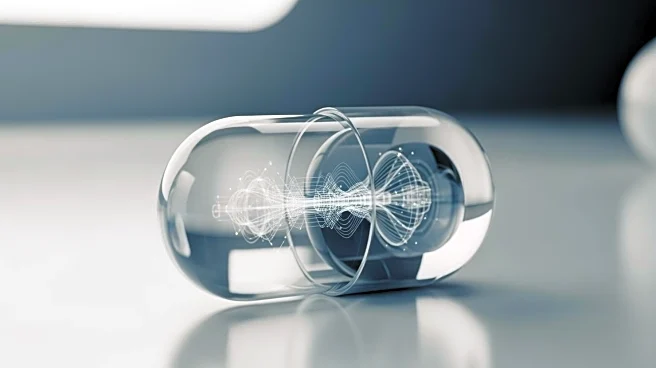What's Happening?
Researchers have developed a new type of ingestible sensor that could potentially replace colonoscopies for detecting gastrointestinal diseases. The sensor, designed as microscopic hydrogel spheres filled
with blood-detecting bacteria, can identify signs of gastrointestinal bleeding non-invasively. These spheres are swallowed and include magnetic particles, allowing them to be easily retrieved from stool. In mouse models with colitis, the sensors successfully identified gastrointestinal bleeding within minutes. The technology aims to provide a rapid and non-invasive method for diagnosing gut-related disorders, offering a more patient-friendly alternative to traditional colonoscopies.
Why It's Important?
This development is significant as it addresses the discomfort and preparation associated with colonoscopies, which many individuals avoid despite their effectiveness in diagnosing conditions like colorectal cancer and inflammatory bowel disease. The new sensor technology could lead to easier and more accessible diagnostics for millions of Americans suffering from these conditions. By providing a non-invasive option, it could increase the rate of early detection and treatment, potentially improving patient outcomes and reducing healthcare costs associated with invasive procedures.
What's Next?
The researchers plan to test the sensor technology in human trials to evaluate its effectiveness and safety in detecting gastrointestinal diseases. If successful, this method could be used not only for diagnosis but also for monitoring treatment progress and disease progression. The team is also exploring the possibility of re-engineering the bacteria within the spheres to detect additional gut-related disorders, expanding the scope of this diagnostic tool.









